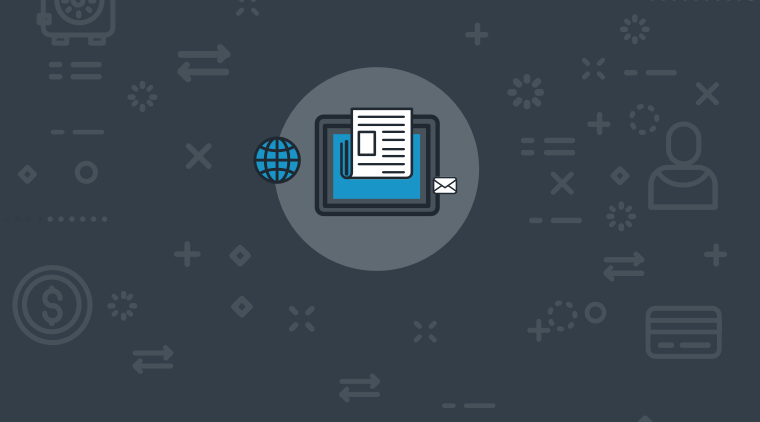What Is a Credit Report and What Is on It?


Learn what a credit report is at Equifax! Read about each consumer reporting agency, see how to get a credit report, understand what is on a credit report and much more! [Duration - 2:16]
Highlights:
- Your credit reports are important pieces of financial information that help lenders measure your level of credit risk, or the likelihood you’ll pay your bills on time.
- Your credit reports include information about the types of credit accounts you’ve had, your payment history and certain other information such as your credit limits.
- Credit reports from the three nationwide consumer reporting agencies — Equifax, TransUnion and Experian — may contain different account information.
Your credit reports are important pieces of financial information that help lenders measure your level of credit risk, or the likelihood you’ll pay your bills on time. So, it's important to understand what a credit report is, as well as what you’d expect to find on one.
What is a credit report?
A credit report is a summary of your credit history, including the types of credit accounts you’ve had, your payment history and certain other information such as your credit limits.
Information in your credit reports is typically provided to the three nationwide consumer reporting agencies (CRAs) — Equifax, TransUnion and Experian — by your creditors. You may see differences in your credit reports depending on which CRA provides them. This is because not all lenders report information to all three CRAs. Some report only to one or two, or even to none at all.
How is your credit report used?
Lenders use your credit reports as part of their evaluation process when deciding whether to extend you credit — and at what terms. Additionally, the information on your credit report is used to calculate your credit scores.
Prospective employers and landlords may also access your credit reports to help them decide whether to offer you a job or a lease. Your credit reports may also be reviewed if you’re trying to secure insurance coverage or if you’re applying for services such as utilities or a mobile phone contract.
What is in an Equifax credit report?
Your Equifax credit report contains the following types of information:
- Identifying information: This section of your Equifax credit report, which is not used to calculate your credit scores, includes personal information, such as your name, address, Social Security number and date of birth.
- Credit account information: This information is reported to Equifax by your creditors and includes the types of accounts (for example, a credit card, mortgage, student loan or vehicle loan), the date those accounts were opened, your credit limit or loan amount, account balances and your payment history. Under certain circumstances, it may not contain all your credit accounts, such as a closed account that has dropped off your report after a certain period of time, or an account not reported to Equifax by one of your creditors.
- Inquiry information: There are two types of inquiries: “soft” and “hard.”
“Soft” inquiries may result from checking your own credit reports, companies extending you pre-approved offers of credit or insurance, or your current creditors conducting periodic account reviews. Because soft inquiries do not impact credit scores, regularly checking your credit reports is a low-risk way to monitor your credit accounts and help you identify inaccurate or incomplete information, or suspicious activity that may signal potential identity theft.
“Hard” inquiries occur when companies or individuals, such as a credit card company or lender, review your credit reports because you have applied for credit or a service – for example, a new loan, a credit card or a mobile phone contract. Hard inquiries remain on your credit reports for up to two years, and may impact your credit scores. Hard inquiries are just one of the factors that determine your credit scores.
- Bankruptcies: Bankruptcies generally remain on your credit report for seven to 10 years, depending on the type of bankruptcy. A Chapter 7 bankruptcy is visible on your credit report for up to 10 years, and Chapter 13 for up to seven years.
- Unpaid child support and alimony: It’s also possible for unpaid child support or alimony payments to end up on your credit report and remain there for up to seven years, even if the account is later paid in full. While paying the account will not remove it from your credit report, it may lessen the impact that the previously overdue account has on your credit score.
- Collections accounts: The type of accounts that can be turned over to a collection agency are credit accounts, and also accounts with banks, retail stores, cable companies, mobile phone providers, doctors and hospitals. Effective July 1, 2022, medical debt that was sent to a collection agency but you have since paid off will no longer appear on your Equifax, Experian or TransUnion credit reports. Also, a landlord may seek payment by selling your rent debt to a collection agency. The unpaid rent sold to a collection agency can be included in your credit report for up to seven years.
How to get a credit report
It's important to check your credit reports regularly to ensure the information in them is accurate and complete. It’s also wise to monitor your credit scores.
You can receive free Equifax credit reports with a myEquifax account. Sign up and look for "Equifax Credit Report" on your myEquifax dashboard. For a free monthly VantageScore 3.0 credit score, click "Get my free credit score" on your myEquifax dashboard to enroll in Equifax Core Credit™. A VantageScore is one of many types of credit scores. You can also get free credit reports annually from the three nationwide CRAs at AnnualCreditReport.com.
Get your free credit score today!
We get it, credit scores are important. A monthly free credit score & Equifax credit report are available with Equifax Core CreditTM. No credit card required.



